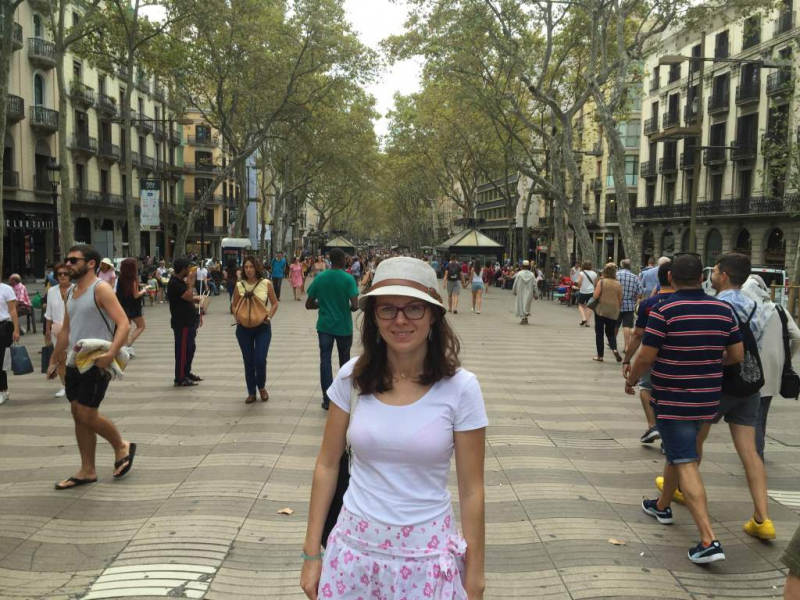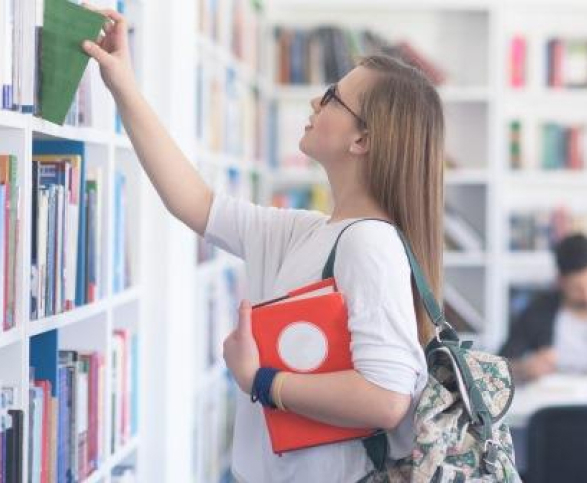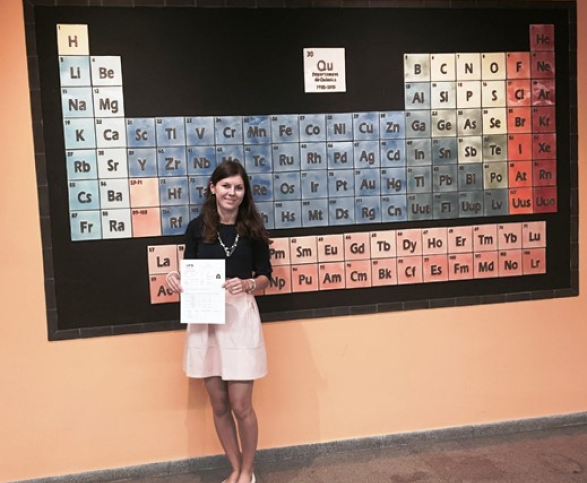
In the academic year 2016/2017, the Maspex Foundation awarded its first scholarship. The recipient is Ms. Basia Łopieńska – the daughter of one of Maspex’s employees. Ms. Basia began her studies at the Autonomous University of Barcelona, majoring in Industrial Chemistry. Below, she shares her first impressions of Barcelona, the campus, and her studies.
My name is Basia Łopieńska, and I am this year’s Maspex Foundation scholarship recipient. I have always wanted to study in Barcelona, so I am very grateful to everyone who contributed to awarding me the scholarship and thus helping me fulfill my dreams. I am happy that thanks to the Foundation and the scholarship I received, I can study what interests me at one of the best universities offering this program.
Since the beginning of September, I can proudly say that I am a student at the Autonomous University of Barcelona. My field of study is the MASTER IN INDUSTRIAL CHEMISTRY AND INTRODUCTION TO CHEMICAL RESEARCH. This is a one-year master’s program (first-cycle studies in Spain usually last four years, so master’s programs are shorter). A total of 40 students were admitted to this program. There are two specializations available: SPECIALIZATION IN ADVANCED CHEMICAL RESEARCH and SPECIALIZATION IN INDUSTRIAL CHEMISTRY. I chose the second specialization, Industrial Chemistry. Students who intend to pursue doctoral studies or work in research groups in the academic environment choose the first specialization. This program allows me to learn modern analytical methods that play a very important role in controlling industrial processes, assessing the quality of raw materials and products, and monitoring and protecting the environment. I will have the opportunity to learn about the capabilities, operation, and use of unique analytical instruments that the university laboratories are equipped with. The classes are conducted entirely in English. From September to December, I will have theoretical classes, i.e., lectures that will end with exams. Then, in January, I will participate in laboratory classes at the university, and from February, internships in companies will be carried out. Each of us will have to conduct research based on which we will then write a master’s thesis. The defense of the master’s thesis is scheduled by the university for early September 2017.
My first impressions of both Spain and the university and campus are very positive. The meeting with the study coordinator put me in a good mood. The people here are extremely nice and open, no one is in a hurry, everyone has time. Professors have a completely different relationship with students than in Poland. Everyone addresses each other by first names, and there is no sense of distance between professors and students, which is often noticeable in our country.
The university organizes various activities for international students from different faculties – the first week at the university is an orientation week. In the first few days, I was invited to a special lunch where people from different countries brought dishes they had prepared themselves, typical of their respective countries. It was a very nice experience that immediately brought us students closer together.
Weekly meetings are organized where locals speak Spanish and English with newcomers – this allows me to practice my Spanish and teach the Spaniards English. Most people in my year know each other from first-cycle studies. Outside of Spain (in my group), there are only me and a colleague from Russia. I thought it would not be easy because the language most commonly spoken here (Catalonia is an autonomous region of Spain) is Catalan. Fortunately, some colleagues want to practice English and are happy to have the opportunity to talk to someone from abroad in this language. From next week, the schedule is more intensive, so it’s time to get down to studying. Additionally, from October, I will start a Catalan course.
The University Campus is located in Bellaterra, about 20 km from the center of Barcelona. It is huge! You can get lost, which has already happened to me. There are six bus lines and a train station on campus. The academic town is surrounded by greenery. During breaks, you can see many students having picnics on the lawns. In addition to the faculty buildings, of which there are 14, and research centers, there are soccer, volleyball, and basketball fields, as well as a swimming pool, tennis courts, a padel court, and gyms. Every student must purchase a sports card to use the sports facilities. The campus also houses a language school, a driving school, libraries, banks, a post office, shops, bars, and other services like a pharmacy and a photographer.
SI had visited Barcelona several times before coming to study. It is a city with very interesting architecture and many places worth visiting. The old town with narrow streets and numerous bars, the famous La Rambla, Plaza de Espanya with evening fountain shows, Barceloneta beach, Parc Güell, Sagrada Familia church, FC Barcelona’s Camp Nou stadium, La Boqueria market with various products are just some of the attractions. The city is very well connected – there are 11 metro lines. On September 11, Catalonia celebrates Diada Nacional de Catalunya, the National Day of Catalonia (the date marks the capture of Barcelona by Bourbon troops in 1714 during the War of Spanish Succession – interestingly, this event was a defeat for the Catalans). There were numerous concerts, and all the streets were decorated with Catalan flags. Catalans have a strong sense of patriotism and national identity. The residents of this region want to create their own country and gain independence from Spain.
I would like to encourage everyone to apply for the Maspex Foundation scholarship program. Studying abroad has many advantages. It teaches you to cope with completely new situations in a new environment. It gives you the opportunity to meet people from different countries, learn about their cultures, cuisines, and traditions. Nowhere else will you learn a language as well as by going abroad.
Greetings from beautiful Catalonia.
Basia Łopieńska


